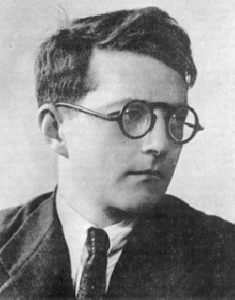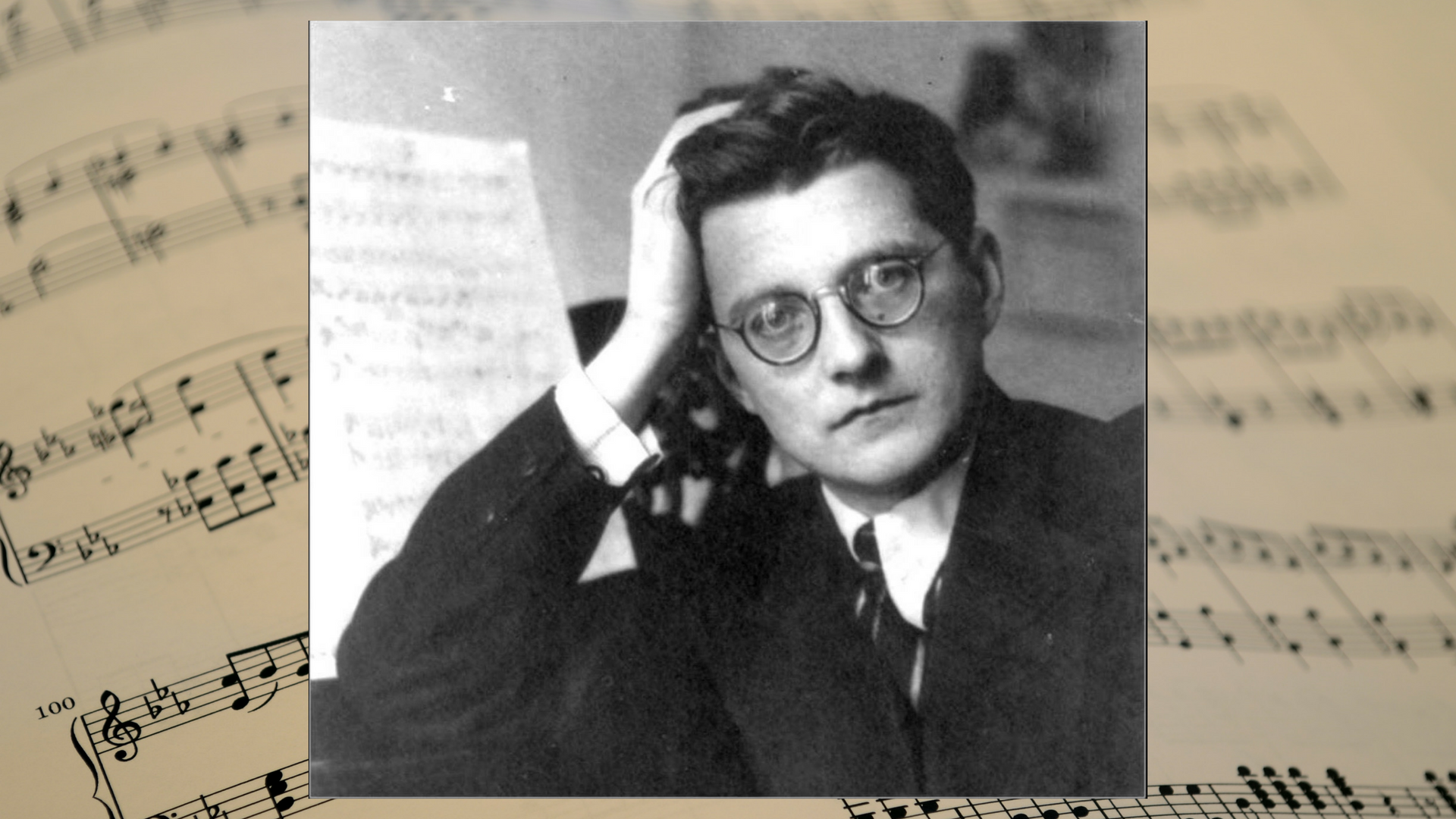In recognition of Free Speech Week read below about composer Dmitri Shostakovich and the restrictions he faced under Stalin’s Soviet Union. He created an incredible piece of music under great threat from the government, and today his Fifth Symphony is regarded as a masterwork of subtle communication to the Russian people who were suffering under “The Great Purge.” Listen to Shostakovich’s Fifth Symphony on Spotify.
Free Speech Week: Shostakovich

Dmitri Shostakovich, 1936. Source.
In the United States, our First Amendment to the Constitution grants the right of the freedom of speech to all U.S. citizens.1 We, the people, are allowed to peacefully gather to protest or to create art that denounces decisions made by our government. For much of the world and for most of history, this right to freedom of speech has not been afforded and art has often been the voice of the people.
One of the most compelling cases of using music as a means of free speech in classical music history is the way Dmitri Shostakovich composed music during the time of Joseph Stalin and the Soviet Union. The government of the Soviet Union strictly regulated concert programming in musical performances during Shostakovich’s time. It wanted the arts to impart a sense of nationalism and elevate the leadership, rather than question it. “Socialist realism” was the term used to describe the ideal form of Soviet arts – works that showed socialism in a positive light, praised Soviet leadership, and used a realistic art style (rather than abstract style or symbolism).
Shostakovich’s trouble with the Soviet government started when Stalin attended a performance of Lady Macbeth of the Mtsensk District, Shostakovich’s second opera. The year was 1936, and Stalin was so displeased that he reportedly left the opera after the third act– before its conclusion. Two days after the performance, an article titled “Chaos Instead of Music” was published in Pravda (Truth), the newspaper of the Soviet Union’s Communist party. The article was a scathing negative review of Shostakovich’s opera and stated that Shostakovich was not adhering to the practice of socialist realism.
The most ominous words of the article are a clear, public threat to Shostakovich: “The power of good music to infect the masses has been sacrificed to a petty-bourgeois, ‘formalist’ attempt to create originality through cheap clowning. It is a game of clever ingenuity that may end very badly.” The article’s publication resulted in the opera being completely withdrawn from performance schedules in the Soviet Union, other contemporaries of Shostakovich disassociating themselves from him, and a severe loss of income for the composer

Kliment Voroshilov, Vyacheslav Molotov, Joseph Stalin, and Nikolai Yezhov at the shore of the Moscow-Volga canal in 1936. Yezhov lead “The Great Purge” as the head of the Soviet secret police, the NKVD.
As if these consequences were not bad enough, 1936 marks the first year of “The Great Purge,” a time when the Soviet government’s secret police would arrest and execute people who were thought to be a threat to the government. An estimated 600,000 people were killed during “The Great Purge.” Writers, intellectuals, and artists were heavily targeted during this time. Shostakovich was so afraid for his life that he kept a packed briefcase near his front door, in case he ever needed to escape. Despite this censorship and oppression, the composer continued to write music.
Although Shostakovich was able to keep a low profile by composing film music, he responded to the public denunciation of his opera with his Fifth Symphony (written in 1937). On the surface, the symphony was aligned with the tenets of socialist realism: the work had a clear tonal language with more simple melodies than Lady Macbeth. Yet, upon listening to the symphony it is chock-full of emotions of bitterness and sorrow.2 The people of the time, living lives of fear during “The Great Purge,” were able to hear messages of grief at the state of affairs in the country.
Since the music was an instrumental work, there were no words to betray the true meaning of the music. The Communist Party was pleased because the music obeyed their requirements of socialist realism, but the music could also be interpreted by audiences as conveying emotions that would be dangerous to voice aloud. Shostakovich succeeded in both “following the rules” of the Soviet government, and providing emotional release for his fellow Russians.
Today, in America, it is hard to imagine a world where one cannot exercise their right to free speech, yet that was the reality for Shostakovich and his Soviet contemporaries. In a place and a time where free speech was not a basic human right, Shostakovich was able to survive hardship and create art that spoke against repression. He could never say out loud what he was truly feeling about “The Great Purge” or the repression under Stalin. Instead Shostakovich used music to convey his inner thoughts that opposed the actions of his government. Despite censorship, he was able to find a way to share his voice. For that, and for the excellence of his music, Shostakovich is beloved by many.
1. “Congress shall make no law respecting an establishment of religion, or prohibiting the free exercise thereof; or abridging the freedom of speech, or of the press; or the right of the people peaceably to assemble, and to petition the Government for a redress of grievances.”
2. To listen to Shostakovich’s Fifth Symphony on Spotify, click here.
Cover image source.








Leave a Reply